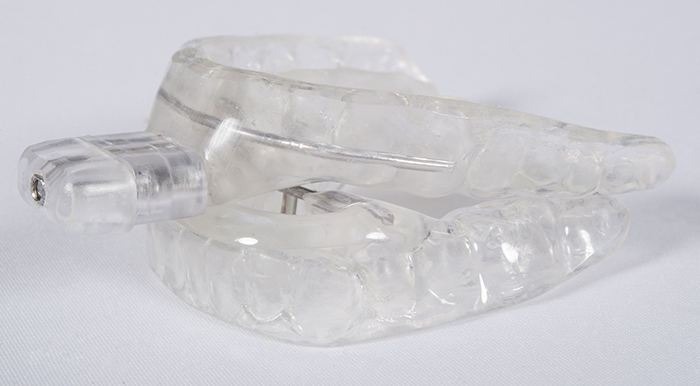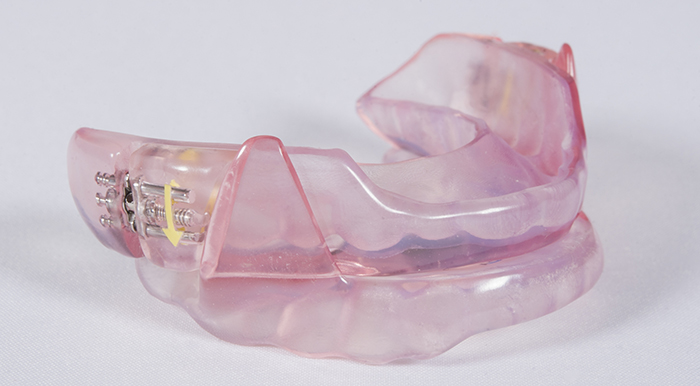Sleepers wanted: Obstructive sleep apnea study enrolling patients

For patients diagnosed with obstructive sleep apnea, effective treatment is vital for overall health.
Texas A&M College of Dentistry’s new sleep research program is enrolling patients for a clinical study to compare two commonly used oral appliances designed to treat this condition. Recruitment is ongoing, with expected study completion by fall 2018.
Study candidates are patients who have been diagnosed with moderate to severe obstructive sleep apnea but cannot tolerate or refuse to use continuous positive airway pressure, commonly known as CPAP. The oral appliances being investigated utilize different mechanisms to advance the lower jaw in order to prevent the tongue and soft tissues of the throat from collapsing and closing off the upper airway. Learning which method is most effective holds significant clinical implications for treatment.

Because dentists are on the front lines in seeing sleep-disordered breathing conditions, the dental college established a helpful resource in 2016: the Clinical Center for Facial Pain and Sleep Medicine. The center encompasses both pain and sleep-related breathing conditions because the two often have a cause-and-effect relationship.
“I think the dental community sees a need for a place to refer their patients, and the College of Dentistry is a good fit,” said Dr. Lawrence Wolinsky, College of Dentistry dean. “We have a team of specialists in one place here.”
Dr. Emet Schneiderman, professor of biomedical sciences, heads the new sleep research program, assisted by Dr. Preetam Schramm, visiting scholar. Schneiderman and Dr. Steve Bender, clinical assistant professor and director of the pain and sleep center, are co-investigators on this research project. With a goal of using such studies to generate data for evidence-based treatment, Schneiderman envisions translating findings directly to benefit patients.
For more information about the oral appliance clinical study or to refer patients, contact Zohre German, study coordinator, at 214-828-8291 or german@tamhsc.edu.
There is no financial compensation for participating in this study, but participants will be able to keep the two-custom-made oral appliances at its completion.